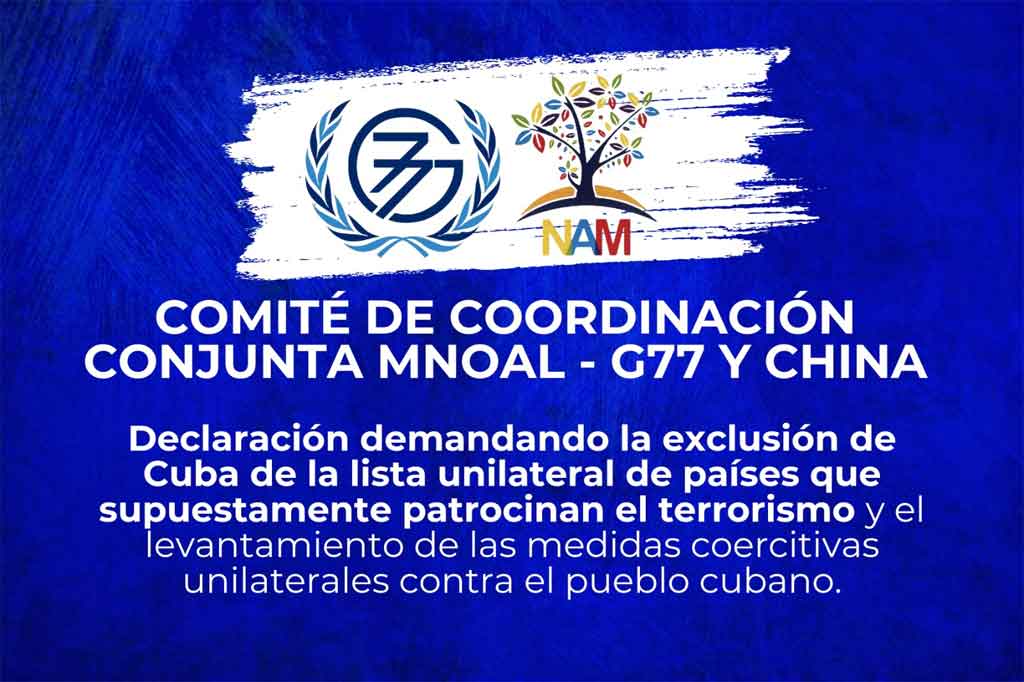Both alliances described such inclusion as an unjust and unfounded accusation that serves as a pretext to impose additional unilateral coercive measures on Cuba, tightening to unprecedented levels the economic, commercial and financial U.S. blockade against the Cuban people.
The communiqué urged the Government of Joe Biden to put an end to this blockade of over six decades, which constitutes the greatest impediment to the full development of the country.
In that regard, they called for compliance with the 31 resolutions adopted by the United Nations General Assembly on the need to put an end to the blockade against Cuba.
The communiqué reaffirmed their steadfast rejection of the imposition of laws and regulations with extraterritorial impact and all other forms of coercive measures, including unilateral sanctions on developing countries, and stressed the imperative need to eliminate them.
At the end of May, the U.S. State Department confirmed the removal of Cuba from the alleged list of countries that “do not fully cooperate” in the fight against terrorism.
However, both the international community and the Cuban Government consider the provision insufficient, as it is not equivalent to the elimination of the States Sponsoring Terrorism (SST) list, which implies serious limitations for the economic and commercial exchange of Cuba.
Cuban President Miguel Diaz Canel insisted that removing his country from the SST list would be the most correct and coherent action to take.
“The United States must do what is right and consistent with that position: remove Cuba from the State Department’s arbitrary SST list and put an end to coercive economic measures that go along with it,” the president wrote in his reaction to the announcement.
Meanwhile, Cuban Foreign Minister Bruno Rodriguez assured that Joe Biden’s administration “must cease all political manipulation of the issue and put an end to our arbitrary and unjust inclusion on the SST list.”
Cuba was first included on the State Department’s SST list during the administration of President Ronald Reagan in 1982.
In 2015, then President Barack Obama deemed that appointment to be without merit in the case of Cuba and removed it.
Four years later, Donald Trump reinstated Cuba just days before leaving the White House, something his Democratic successor maintains despite calls for him to rectify that stance in his policy toward the nation.
ef/omr/rgh/ebr










